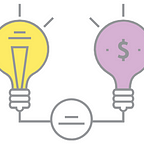Essentials before Investing in the Stock Market
What You Need to Know
Some investors saw an opportunity to buy stocks at a discount when the stock market dipped in March 2020. New investors with little or no investing experience queued up to open a brokerage account to be able to profit off this generational-buying opportunity. While there is no end in sight yet to the COVID-19 recession, you need to know some basics before pouring (more) money in the capital market.
The first thing you need to ask yourself is: what is your goal? As Stephen Covey from The 7 Habits of Highly Effective People speaks about “begin with the end in mind” in the context of a broader picture in your life, I believe this habit is also applicable in setting your financial goals. And for that, it is important to consider what your priorities are.
“Begin with the end in mind”
For example, if you want to buy a house in the coming years, then it may not be a good idea to spend a great deal of your savings in stocks as the value can go up and down. You want to avoid the situation where your mortgage comes short for buying your dream house and your stocks are currently at a lower trading price whereas you could have bought the house if you hadn’t invested your money. It is sensible to build your financial plan and budget for your financial goals.
After you have decided how much financial space you have, it is key to know what your options are before investing money in the capital market. While there are many different (complex) products to choose from, I’m going to elaborate on the more common and relatively safer securities: stocks, ETFs, index funds, and bonds.
Stocks
These are fractions of ownership in a company which often entitles you to the right to dividends as well as the right to cast your vote in a shareholders meeting. The typical investor buys shares in a company to either receive periodic dividends, to sell shares when it hits a higher stock price, or both reasons. While these reasons are both fine, please conduct your research in your target company before buying any shares to know what you’re buying and to minimize negative surprises.
Exchange-Traded Funds (ETFs) and Index Funds
If you prefer to minimize effort and not going through the hassle of keeping yourself updated on the news, disclosures, quarterly and annual reports of the company you invest in, then ETFs may be a better option for you.
You can see this as buying a basket which contains a collection of stocks (and sometimes other securities such as commodities and/or bonds). In the event one stock in that basket underperforms, this will not influence your investment as much as when you would have held only that particular stock. As there are still other stocks in that basket that can safeguard that ETF from underperforming, this results in ETFs being a relatively safer investment option compared to stocks in a single company.
If you have set your eyes on an ETF you can find more information in the prospectus or the Key Investor Information Document (KIID), for example on the risk profile, annual costs, and whether that ETF pays out dividends.
Where ETF tracks stocks/commodities/bonds, index funds track a particular market index such as the S&P 500 or the Nasdaq. Another difference is, for example, that ETFs trade throughout the day while index funds only trade when the market close, as the share price of the index fund is calculated after the market close.
ETFs and index funds fit a passive investment strategy for the long-term whereas stocks are generally instruments for the short- as well as long-term.
Bonds
A bond is an asset that represents a unit of debt issued by a corporate entity or government which they use to finance projects or their financial household. If you are the holder of a bond, you will usually receive a coupon (periodic interest rate) and when the maturity date is reached, the issuer of the bond must pay the principal amount to you. An important note is that bonds are tradable, which means a bondholder does not need to hold a bond for the length to its maturity date.
It is generally accepted that bonds compared to stocks are a safer investment but provides less return.
Many securities that are invented in the investment world that can build or break your wealth. The private investor can experience difficulties in choosing the investment product that best fits his/her preferred investment strategy. I hope that by describing the characteristics of a few securities, I have provided more clearance in the options to partake in the world of investing.
Remember that you need to decide for yourself what risk you are willing to take, which investment products suit your investment strategy, and above all: know what you are buying.
Disclaimer
All investment/financial opinions expressed in this article are from the personal research and experience and are not intended as, and shall not be understood or construed as, financial advice. The content is intended to be used for informational purposes only. It is very important to do your own analysis before making any investment based on your personal circumstances. Past performance is not a guarantee for future return or is it necessarily indicative for future performance. Keep in mind investing involves risk. The value of your investment will fluctuate over time and you may gain or lose money.
